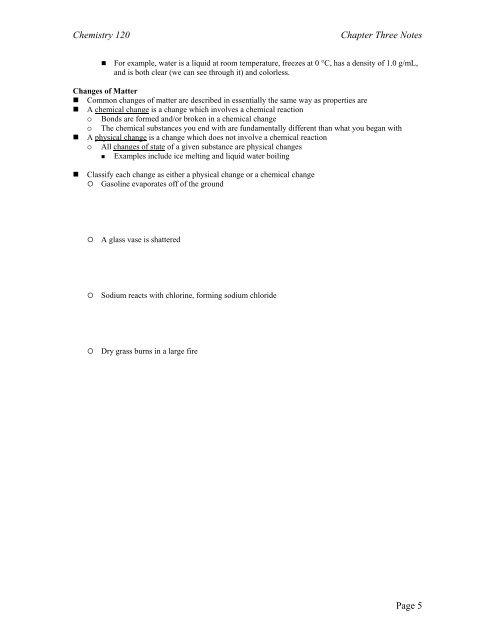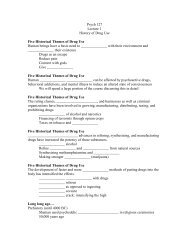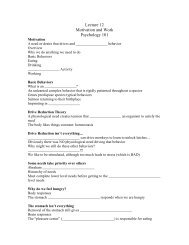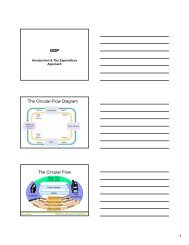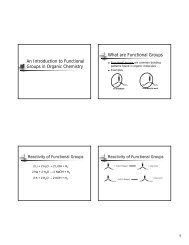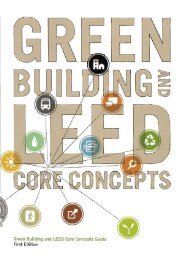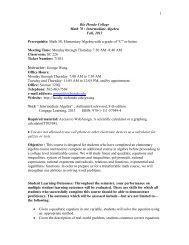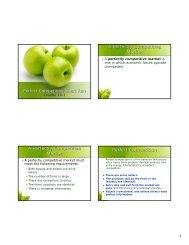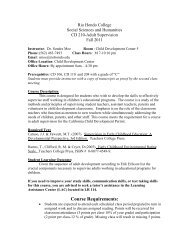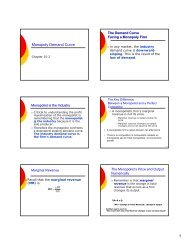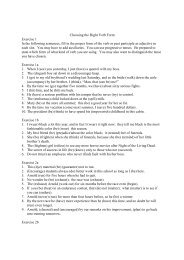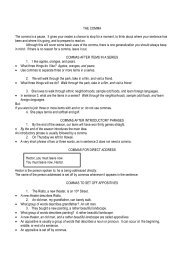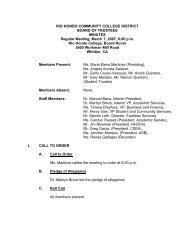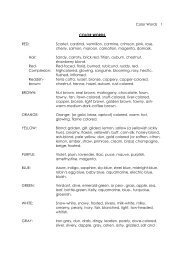You also want an ePaper? Increase the reach of your titles
YUMPU automatically turns print PDFs into web optimized ePapers that Google loves.
<strong>Chemistry</strong> <strong>120</strong><br />
Chapter Three <strong>Notes</strong><br />
• For example, water is a liquid at room temperature, freezes at 0 °C, has a density of 1.0 g/mL,<br />
and is both clear (we can see through it) and colorless.<br />
Changes of Matter<br />
• Common changes of matter are described in essentially the same way as properties are<br />
• A chemical change is a change which involves a chemical reaction<br />
◦ Bonds are formed and/or broken in a chemical change<br />
◦ The chemical substances you end with are fundamentally different than what you began with<br />
• A physical change is a change which does not involve a chemical reaction<br />
◦ All changes of state of a given substance are physical changes<br />
• Examples include ice melting and liquid water boiling<br />
• Classify each change as either a physical change or a chemical change<br />
◦ Gasoline evaporates off of the ground<br />
◦ A glass vase is shattered<br />
◦ Sodium reacts with chlorine, forming sodium chloride<br />
◦ Dry grass burns in a large fire<br />
Page 5


